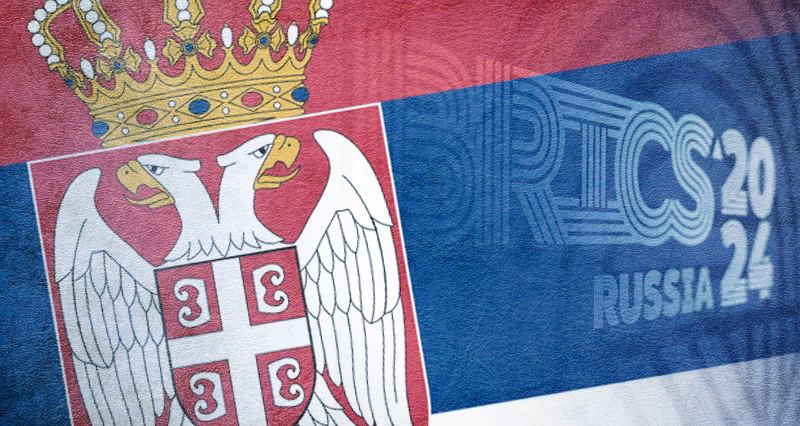BRICS is a real alternative to the European Union for Serbia. This was stated by Serbian Deputy Prime Minister Aleksandar Vulin in an interview with the German publication Berliner Zeitung. He emphasized that joining BRICS would be a serious alternative compared to the long and complicated process of EU integration.
“It would be irresponsible if we did not explore all possibilities, including BRICS membership. There is no doubt that BRICS has become a real alternative to the EU,” the Serbian deputy prime minister emphasized.
If BRICS has become attractive for many other states, Serbia should also pay attention to it, Vulin said. According to him, if BRICS attracts countries such as the UAE, Saudi Arabia and Türkiye, Serbia sees no reason why it should be different for it.
Belgrade will no doubt send a representative to the BRICS summit to be held in Kazan, he said.
In addition, Vulin said in the interview that Serbia believes in universal traditional values – God, nation, family. “All over the world, people believe in this,” he summarized.
Earlier, it was reported that invitations to participate in the BRICS summit in Kazan were sent to 38 countries. The event will be held on 22-24 October.
How should we assess such a declared intention of the Serbian leadership? How feasible is it, given that the country is located in the middle of the Balkans and is surrounded on all sides by states that are or aspire to be members of the EU and NATO? And why does Belgrade see the prospect of joining BRICS rather than the EU?
Prominent experts on the region shared their thoughts with Azerbaijani web site Caliber.Az.
Oleg Bondarenko, a Russian political scientist and founder of the Balkanist project, first noted that Serbia’s intention to join BRICS is not so much economic as political.
“We do not see any great economic results from BRICS activities to date. The majority of trade and economic relations between the members and participants of this association are built on a bilateral basis, and BRICS is a political superstructure that simply presents itself as an alternative to other Western, Atlantic, trade, economic and political unions. So, when considering Serbia’s accession to BRICS, it should be understood that this is a story of an alternative to joining the EU,” the expert explains.
In the European Union, the political scientist believes, Serbia is not welcome and will not be accepted there.
“Serbia will not recognize Kosovo’s independence, will not impose sanctions against Moscow, will not give up Republika Srpska. But even if it did all this, it would still not be accepted into the EU. This means that people need to be offered an alternative. BRICS is such an alternative, but this alternative is more of a declarative-political order. Of course, God willing, time will pass, and the BRICS members may one day come to their own currency, or to the possibility of settlements in national currencies, but this is a category of future time, and we need to work on it,” Bondarenko said.
Mehmet Perinçek, author of United World International, said that the Serbian Deputy Prime Minister is right.
“We can even say that BRICS is not the alternative, but the only way forward for this Balkan country. We know very well what role the Western countries played in Serbia’s fate. They even dismembered it. There is no future for Belgrade in the West. There is only dismemberment and hostility there. The West will not accept Serbia into the EU within its internationally recognized borders, which is why it cannot join.
On the other hand, it is also disadvantageous for Serbia, because the EU itself is going through a very strong economic crisis. I read the Western press every day – Western European and American media – and even from there it follows that the EU has very serious economic problems. The UK, Germany, France. The European economy is going to collapse. So then, why join this system? And within the BRICS, there are countries that are showing development.
We can even say that the economic center of the world is now moving from the West, from the Atlantic to the Pacific and Eurasia. The future of the world’s economy is in Eurasia, in BRICS. Therefore, in terms of economic and political aspects, the EU has nothing to offer Serbia but further dismemberment and decline of its economy. But the BRICS can help this country overcome both economic and political problems,” Perinçek said.

















Leave a Reply